Governance and Civics Worksheets for Ages 4-8
51 filtered results
-
From - To
Explore our collection of Governance and Civics Worksheets for ages 4-8, designed to engage young learners in understanding the basics of government, community roles, and citizenship. Fun and interactive, these worksheets include activities like matching community helpers, identifying national symbols, and simple problem-solving scenarios. Perfect for classrooms or homeschooling, our resources foster early critical thinking and an appreciation for civic duties in a playful manner. Nurture informed and responsible citizens by incorporating these responsibly-crafted educational tools in your lessons today! Learning about governance and civics has never been so accessible and enjoyable for young minds.
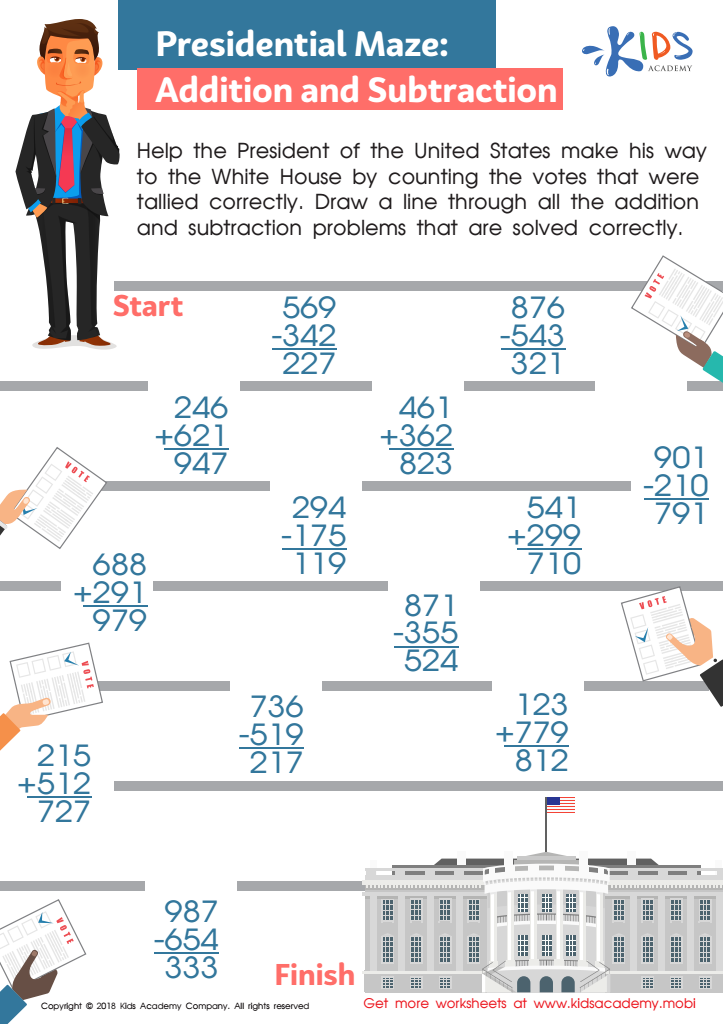

Presidential Maze: Addition and Subtraction Worksheet


The Constitution Worksheet


Bill of Rights Worksheet


White House Worksheet
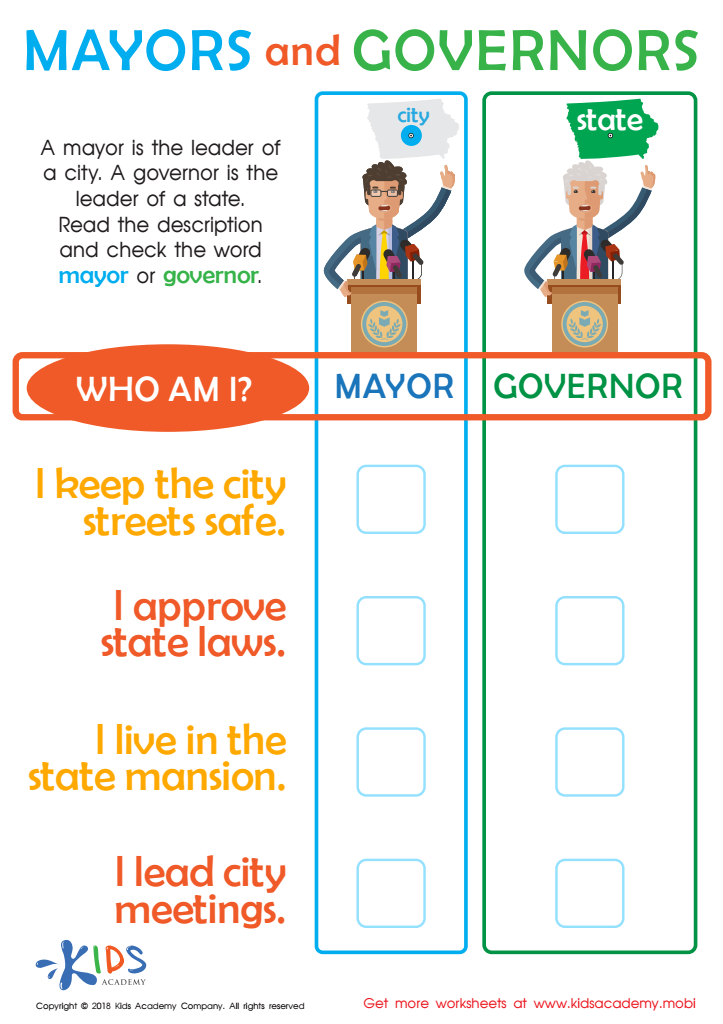

Mayors and Governors Worksheet
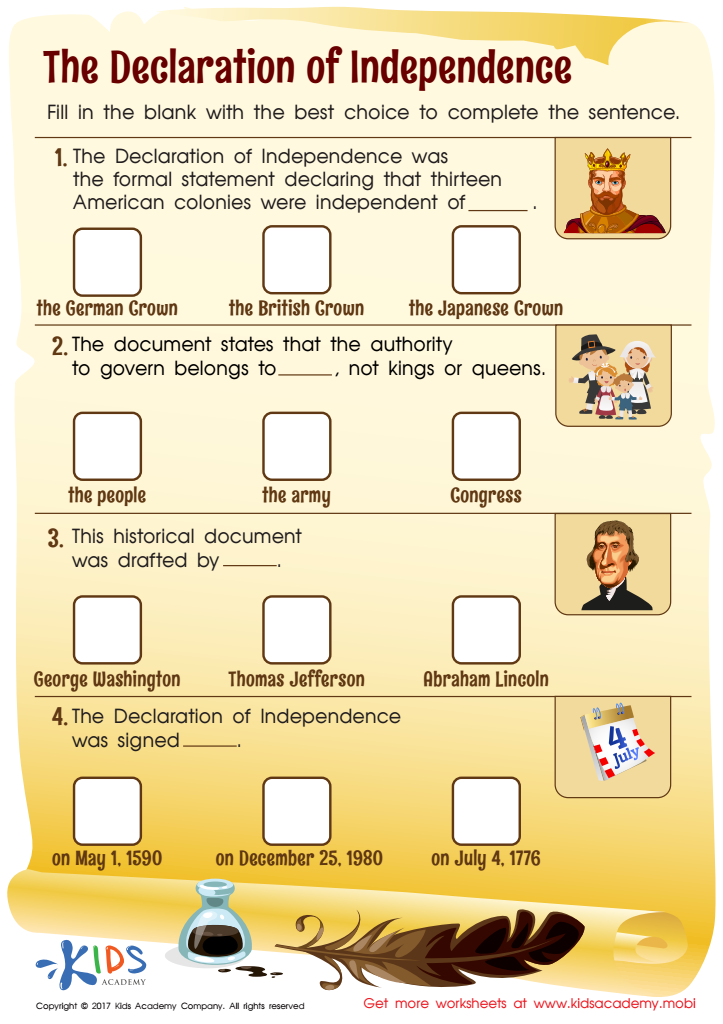

Declaration of Independence Worksheet
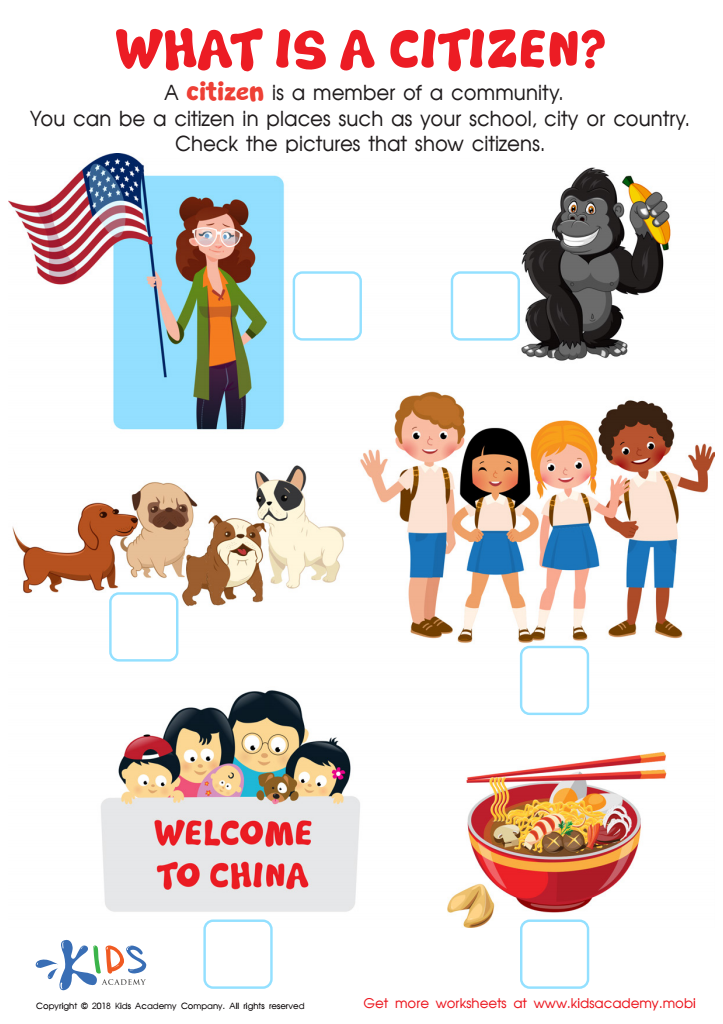

What is a Citizen? Worksheet
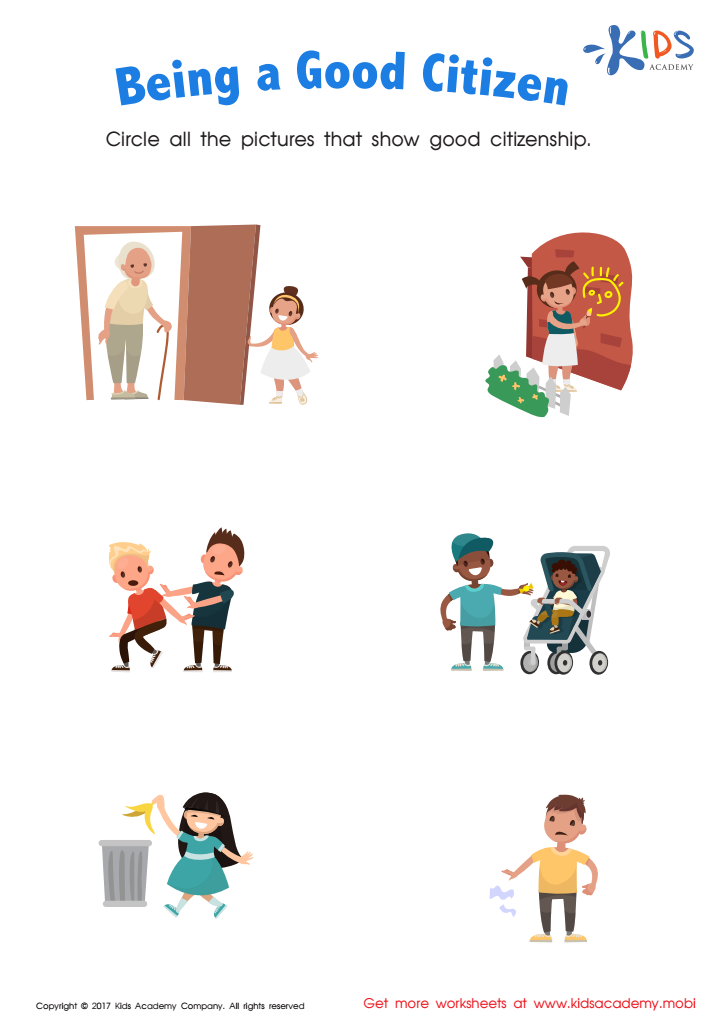

Being a Good Citizen Printable
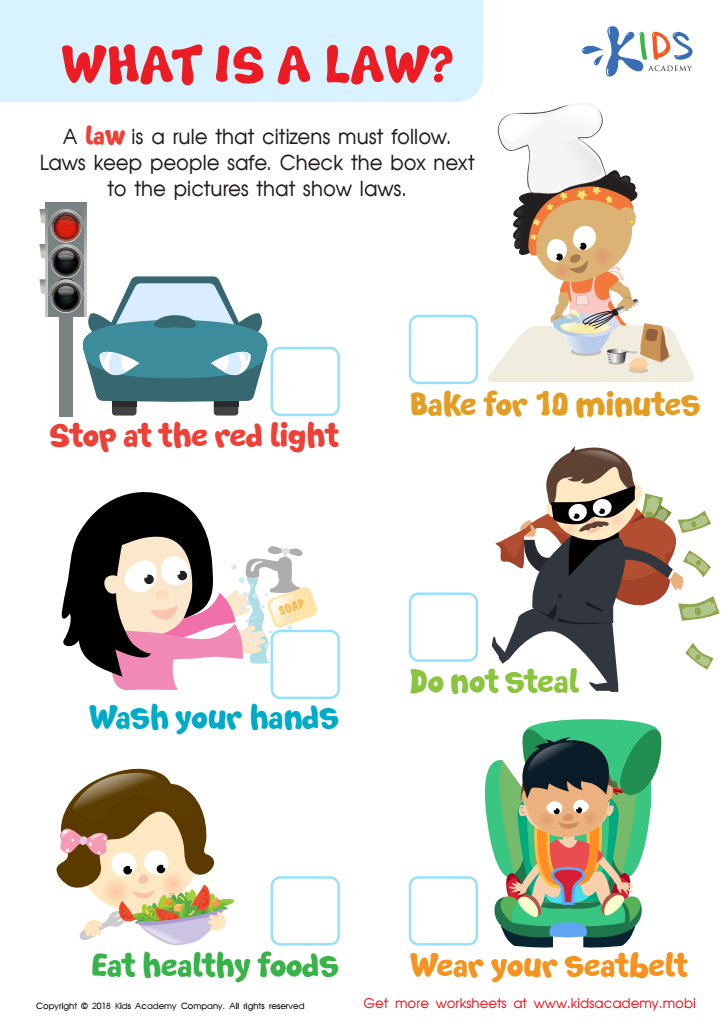

What is a Law? Worksheet
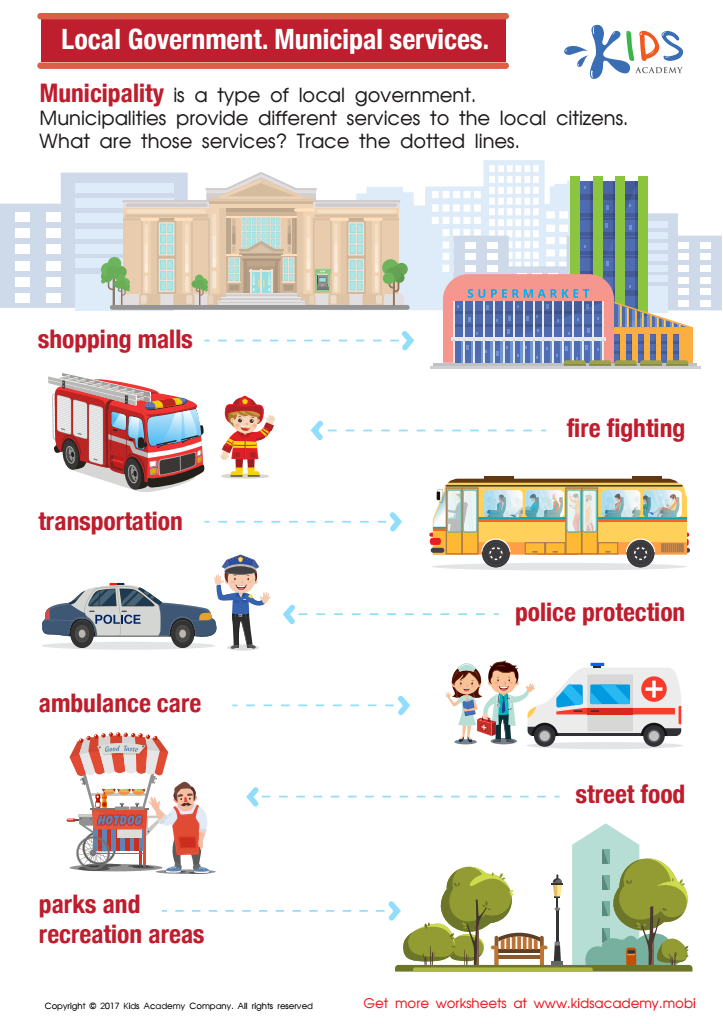

Local Government Worksheet
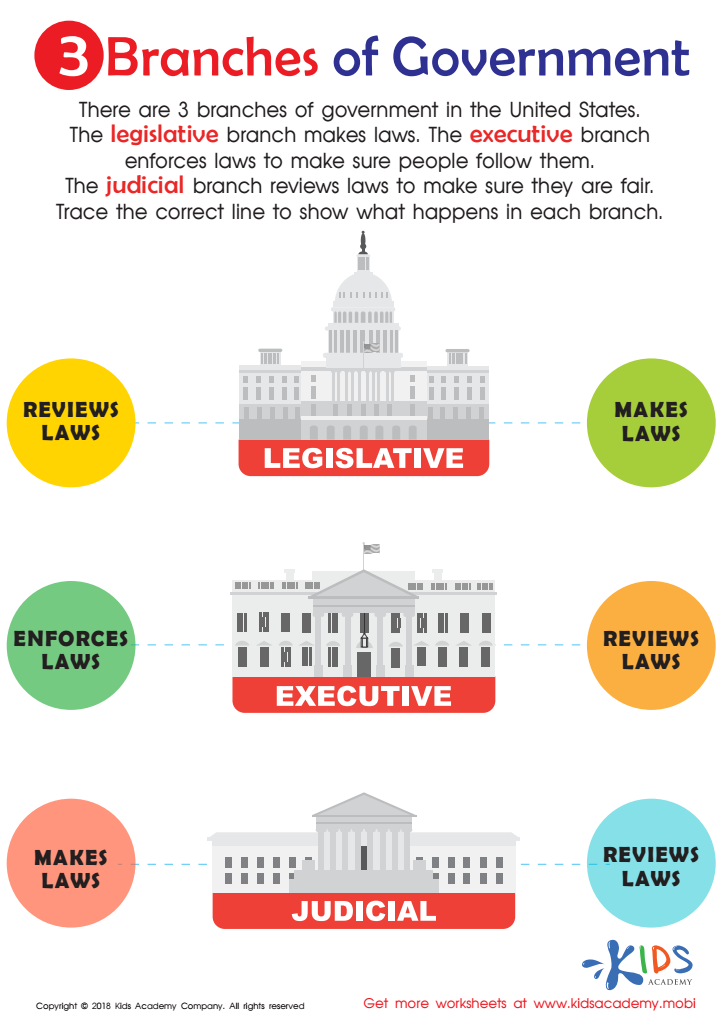

3 Branches of Government Worksheet
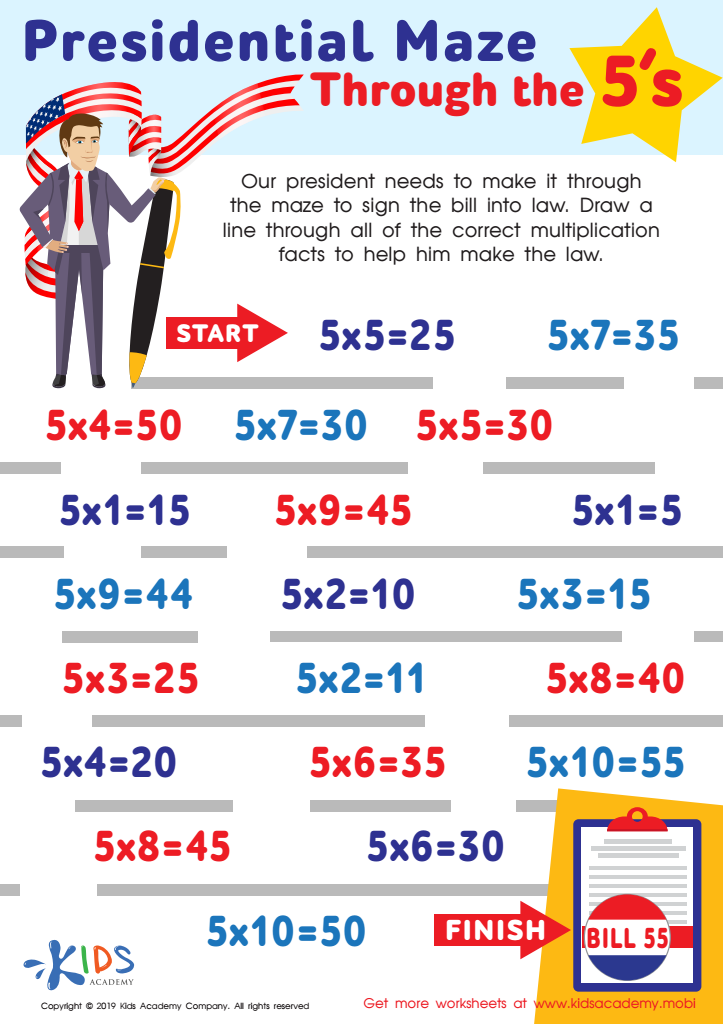

Presidential Maze Through the 5’s Worksheet
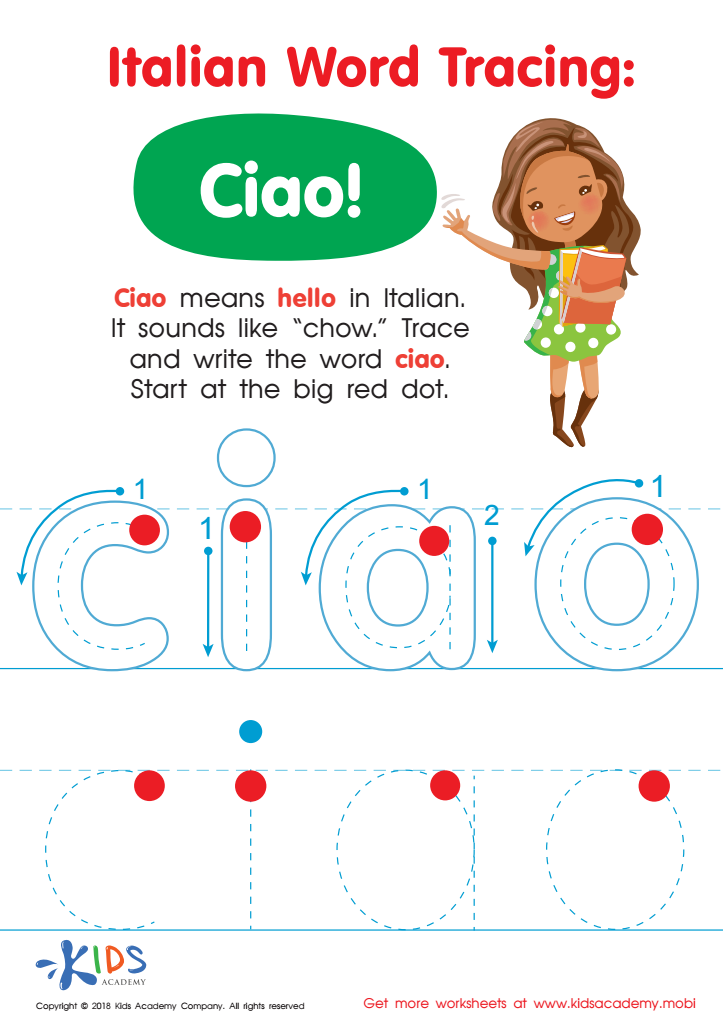

Italian Word Tracing: Ciao Worksheet
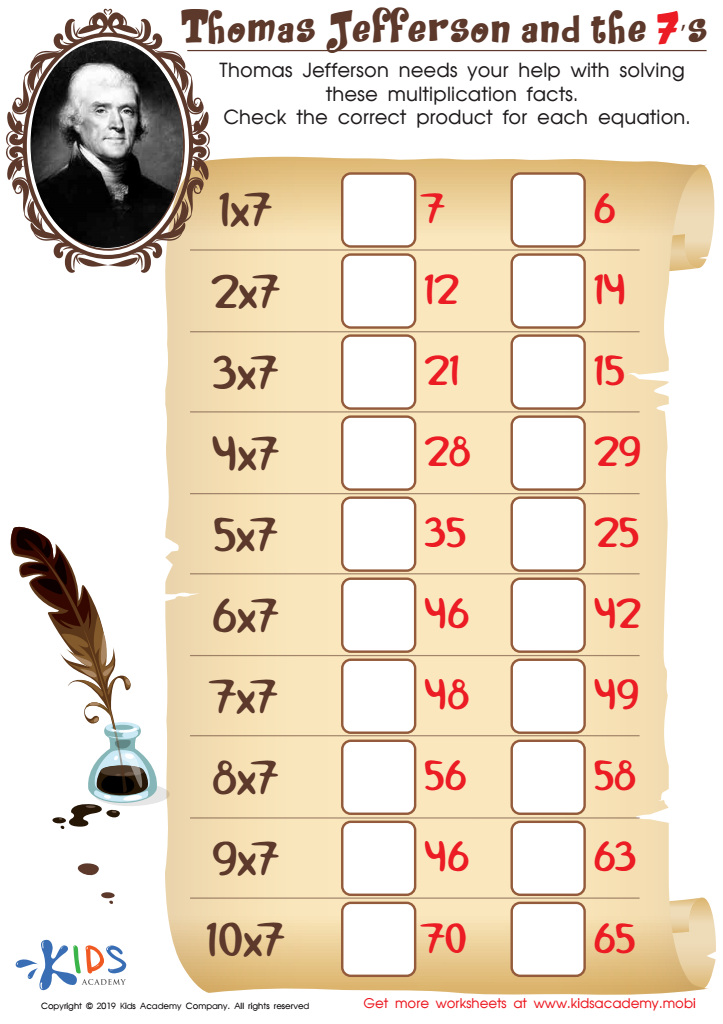

Thomas Jefferson and the 7’s Worksheet
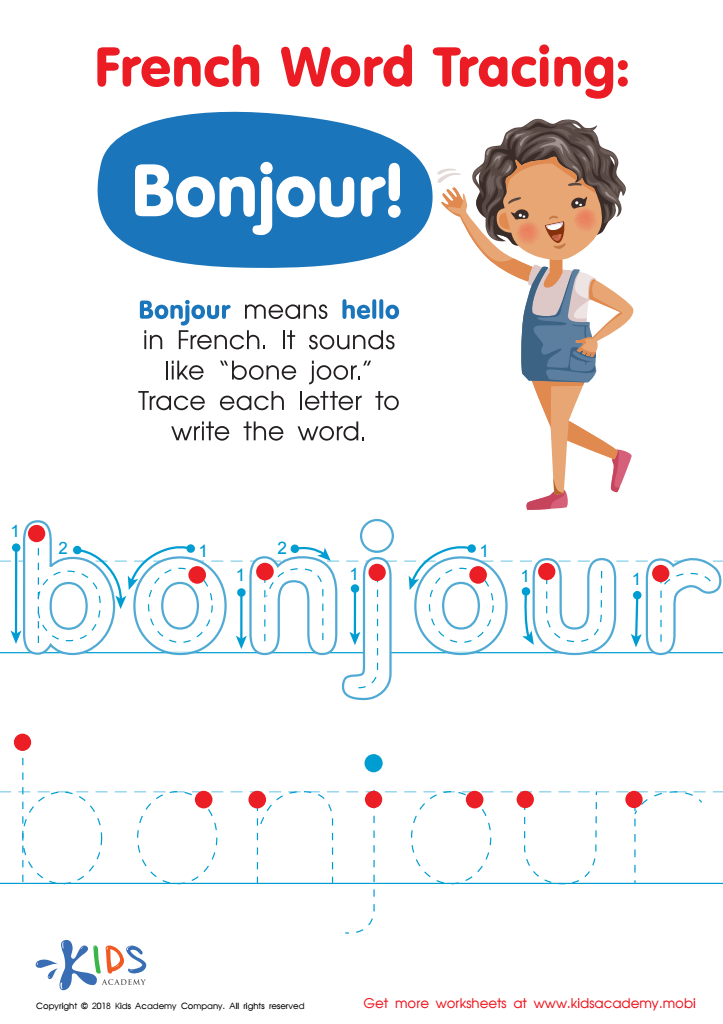

French Word Tracing: Bonjour Worksheet
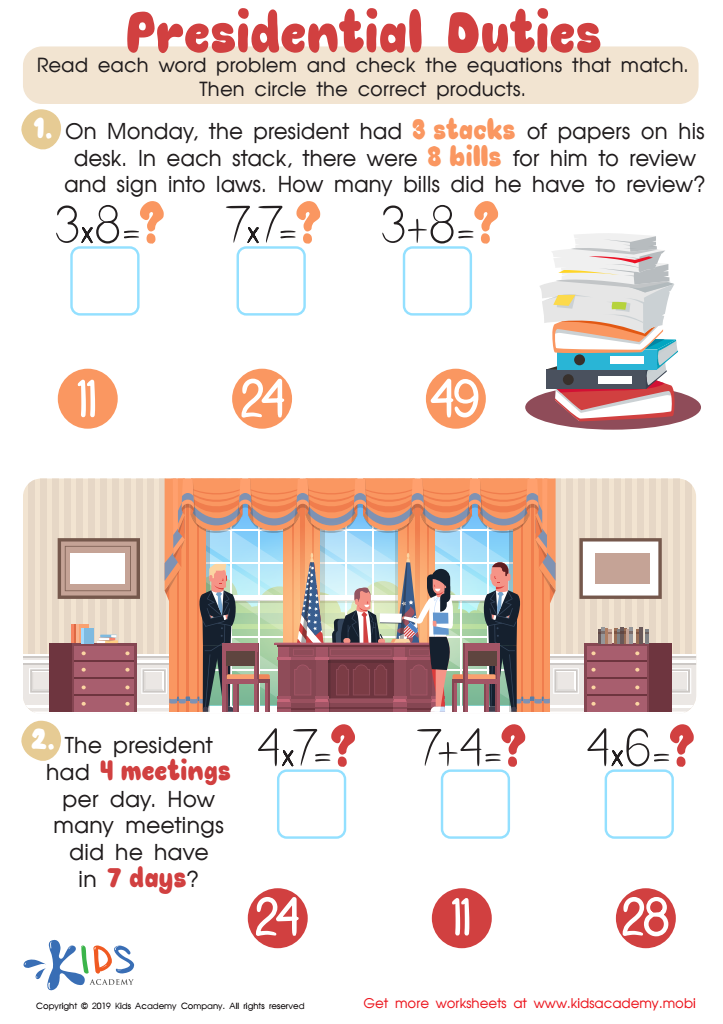

Presidential Duties Worksheet
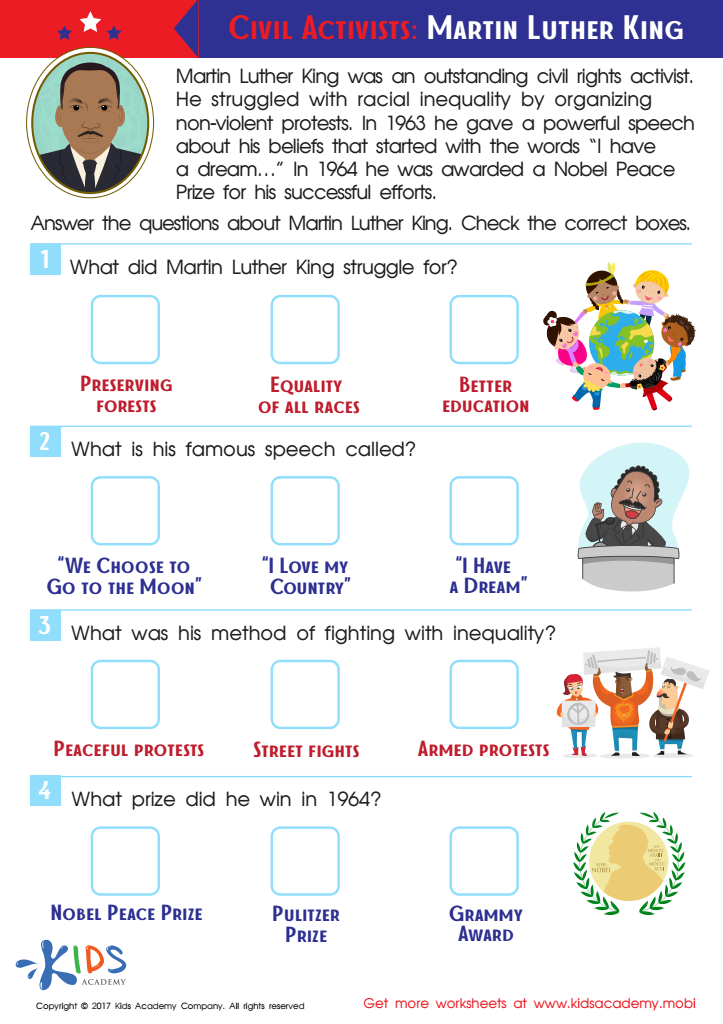

Martin Luther King Worksheet
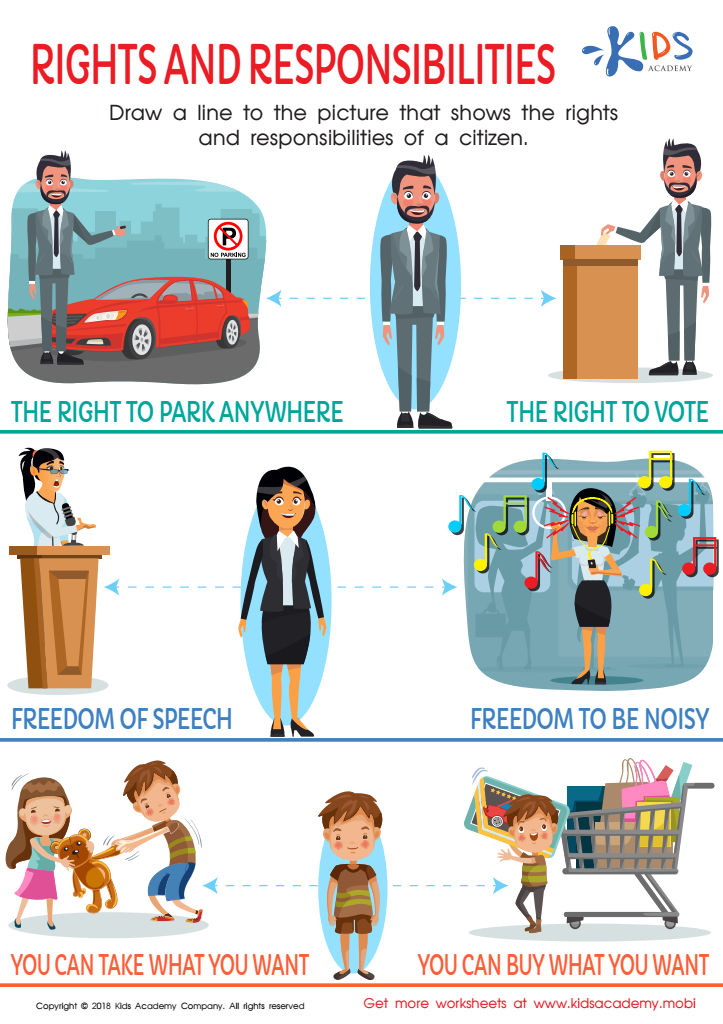

Rights and Responsibilities Worksheet
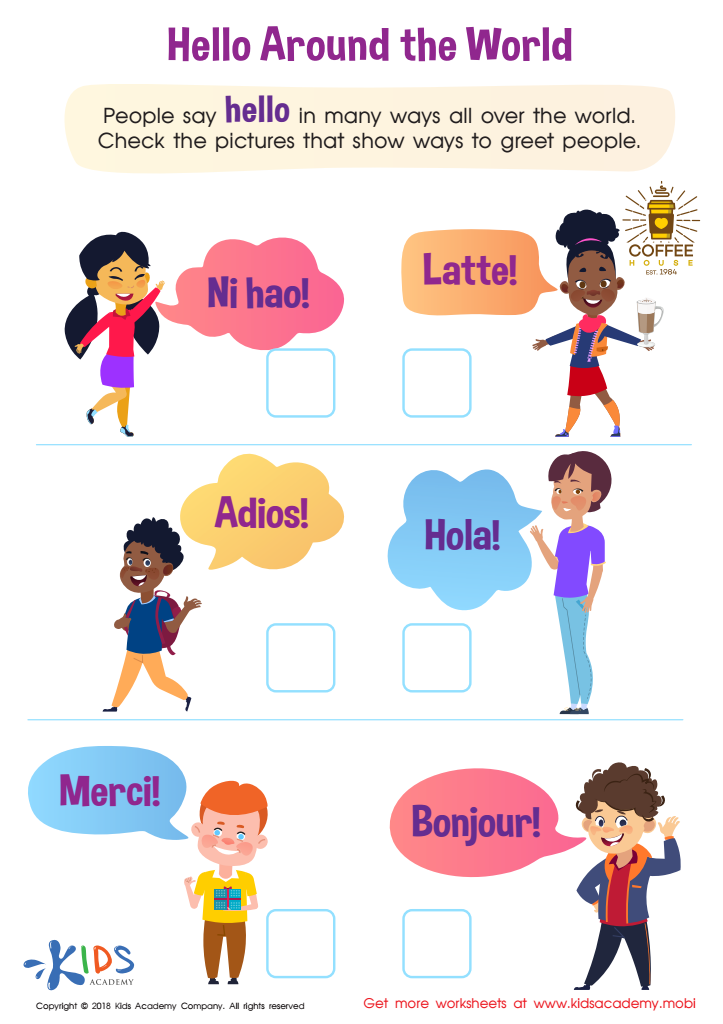

Hello Around the World Worksheet
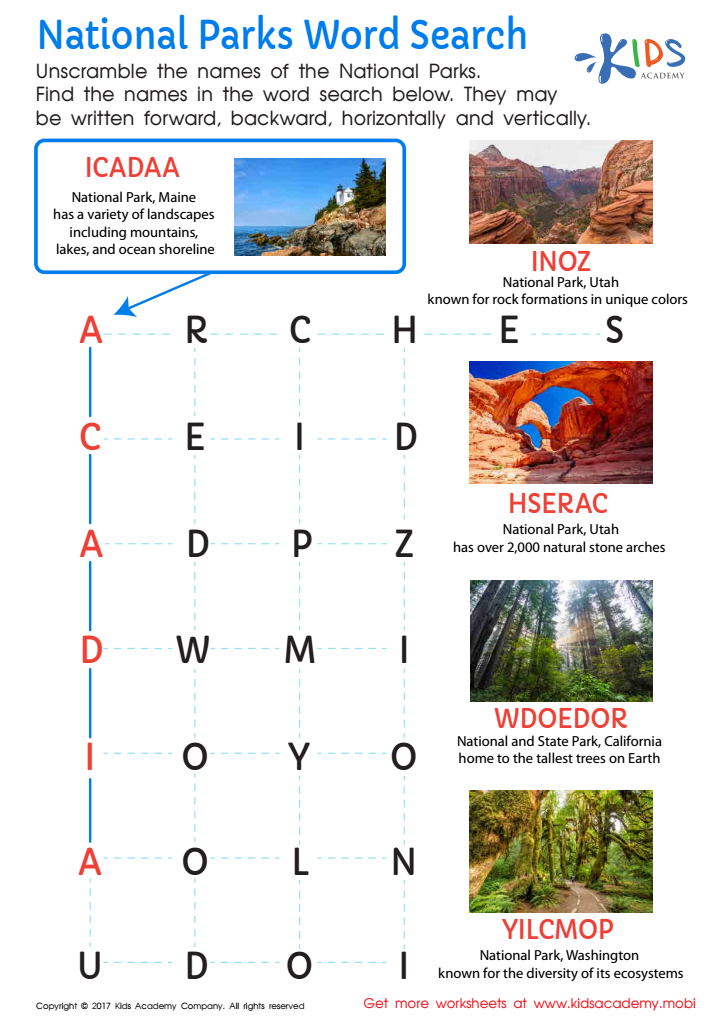

National Parks Word Search Worksheet
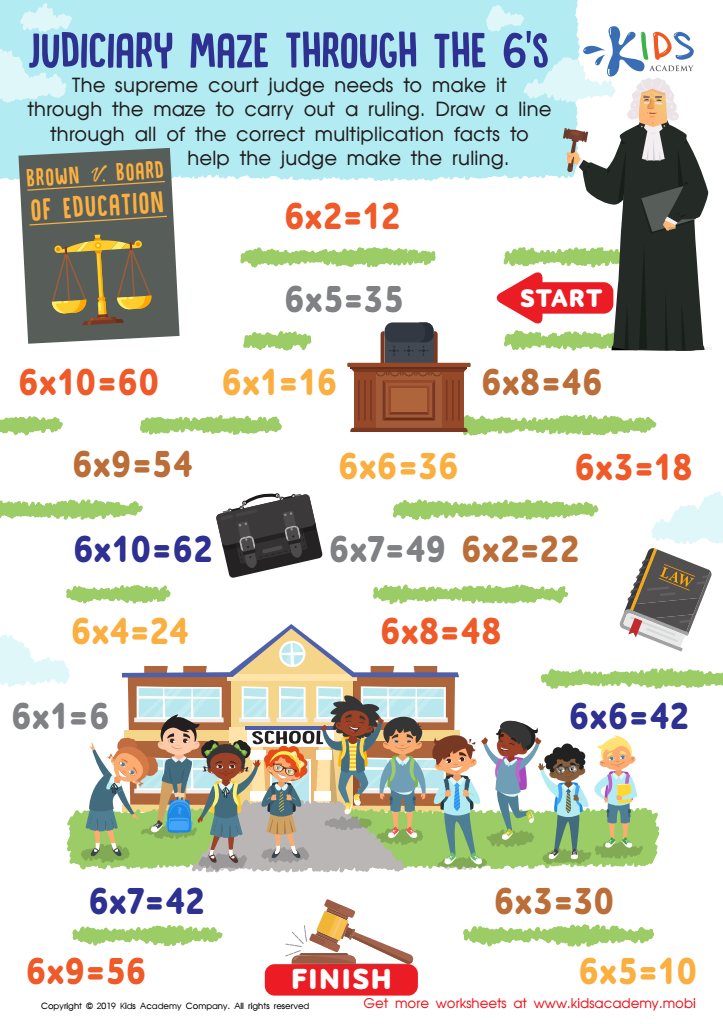

Judiciary Maze Through The 6’s Worksheet
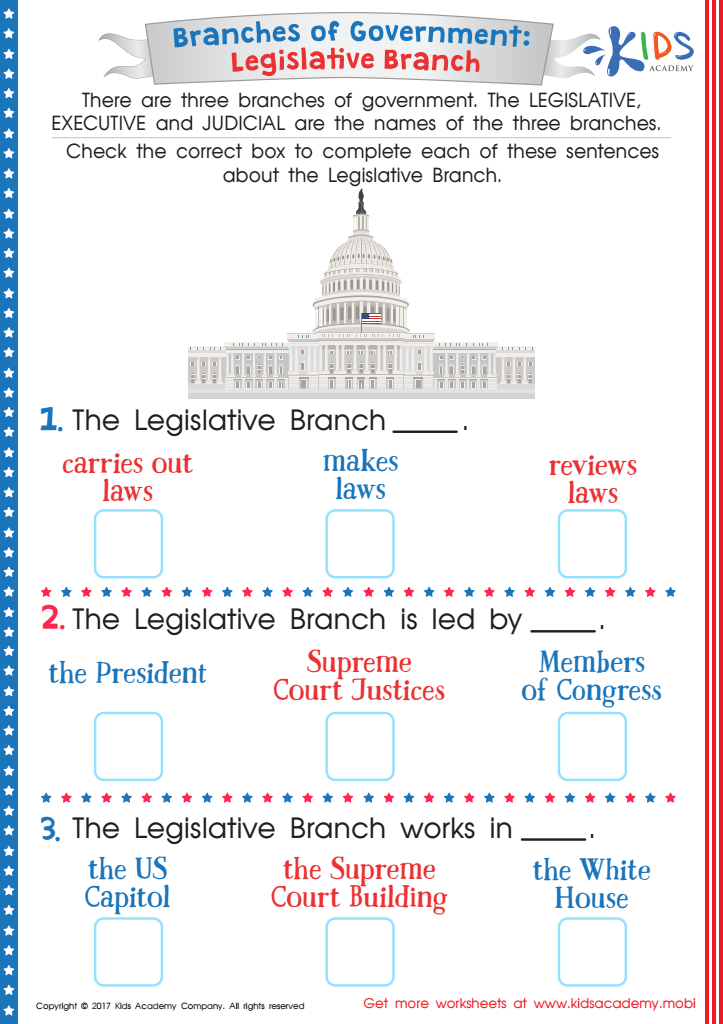

Branches of the Government: Legislative Branch Worksheet
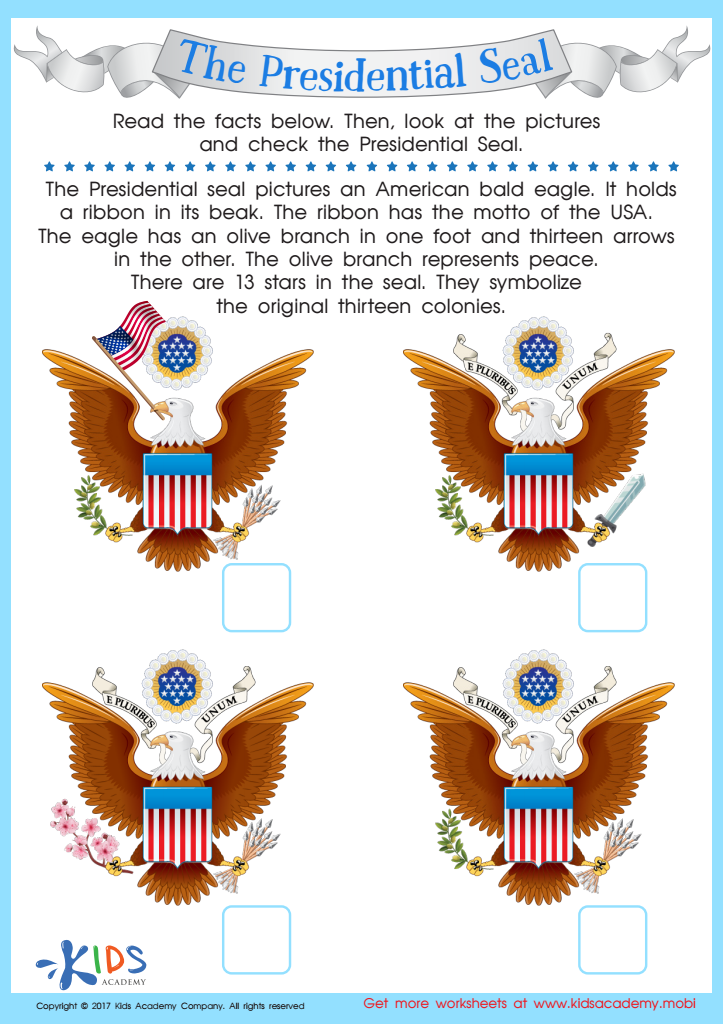

The Presidential Symbol Worksheet
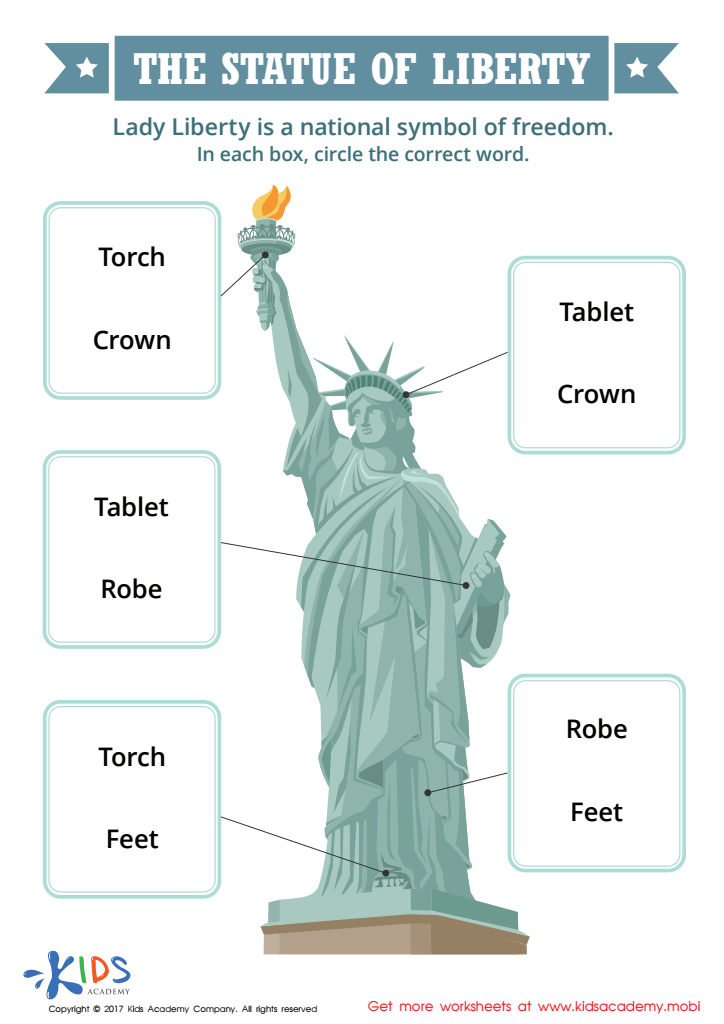

The Statue of Liberty Printable
Governance and Civics, even for children aged 4-8, form a fundamental part of their education and overall development. Teaching young children about governance introduces them to the concepts of rules, cooperation, fairness, and authority. Understanding why rules exist and how they are made helps children develop respect for classroom and community regulations, fostering a sense of responsibility and security.
Civics education imparts essential values such as empathy, social justice, and participatory citizenship. It's never too early to begin encouraging children to think about what it means to be part of a community. When children understand civic concepts, such as voting, representation, and the importance of community engagement, they are more likely to grow into informed and active citizens.
Moreover, teaching civics aids in character development. Children learn to appreciate diversity, voice their opinions respectfully, and listen to others. This contributes to better conflict resolution and communication skills, both crucial for personal and social success.
In addition, early exposure to civics and governance ensures that children understand the importance of their role in society, laying a groundwork for informed and engaged citizenship from an early age. By instilling these concepts early, teachers and parents empower children to be thoughtful, responsible, and active participants in shaping their world.
 Assign to My Students
Assign to My Students









